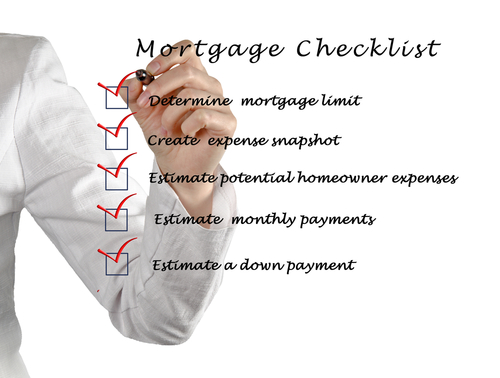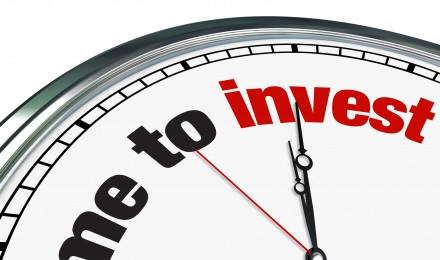A house is more than just a place to live, it is an investment and it is a huge debt that you take on. For a long time, people believed that you couldn’t lose investing in real estate and that buying a house was the best way to significantly increase your net worth. Unfortunately, the mortgage and real estate crisis in 2008 showed that this is not necessarily the case. While a home can still be a great purchase, it is important to buy a house that you can afford and to make sure you are financially ready to make the purchase of a new home before you buy. Creating a financial checklist before you buy your home is crucial. It’s important to make sure you have all your finances in order before doing anything.
Financial Checklist Before You Buy a House
To make sure that you are ready to buy a house, there are a few key financial milestones you should meet and things you should accomplish. These include:
- Making sure you have a good credit score. A score above 720-740 is generally considered a good score that can help you to get the best mortgage rates. If your score is low, you are going to end up paying a lot more interest over the life of the loan and you may wish to pay down debt and otherwise try to boost your credit before purchasing the house.
- Saving a 20 percent down payment. Most lenders require that you put a minimum of 20 percent down on a home if you are going to take on a mortgage. While you can sometimes get around this by taking an 80-20 loan (an 80 percent first mortgage and a 20 percent second mortgage) or by paying private mortgage insurance (PMI), you should not try to get around the requirement. PMI is a waste of money, and if you put down less than 20 percent you are at risk of going underwater (owing more than the house is worth) if there is any decline in property values.
- Ensuring you can easily pay your mortgage and still have money left over. You do not want to be house poor or struggle to pay your mortgage every month. It can be a good idea to “pay” your mortgage before you actually buy the house. In other words, figure out how much your mortgage is going to be and if the payment is more than your rent, start to pay the difference every month into a savings account (which you can use to bolster your down payment). This will help you to see if you can actually comfortably make your mortgage payments over the long term.
- Having an emergency fund. Most experts recommend having between three and six months of living expenses set aside in an emergency fund. If you are the only breadwinner then it is a good idea to have at least six months of expenses set aside. Erring on the side of a six month emergency fund is also a good idea in times of high unemployment (like now).
By doing these steps before you buy a home, you can ensure you are financially prepared for your purchase. As long as you buy a home within a reasonable price range that you can afford, your home should be a good investment and a wonderful place to live.
A house is more than just a place to live, it is an investment and it is a huge debt that you take on. For a long time, people believed that you couldn’t lose investing in real estate and that buying a house was the best way to significantly increase your net worth. Unfortunately, the mortgage and real estate crisis in 2008 showed that this is not necessarily the case. While a home can still be a great purchase, it is important to buy a house that you can afford and to make sure you are financially ready to make the purchase of a new home before you buy. Creating a financial checklist before you buy your home is crucial. It’s important to make sure you have all your finances in order before doing anything.
Financial Checklist Before You Buy a House
To make sure that you are ready to buy a house, there are a few key financial milestones you should meet and things you should accomplish. These include:
- Making sure you have a good credit score. A score above 720-740 is generally considered a good score that can help you to get the best mortgage rates. If your score is low, you are going to end up paying a lot more interest over the life of the loan and you may wish to pay down debt and otherwise try to boost your credit before purchasing the house.
- Saving a 20 percent down payment. Most lenders require that you put a minimum of 20 percent down on a home if you are going to take on a mortgage. While you can sometimes get around this by taking an 80-20 loan (an 80 percent first mortgage and a 20 percent second mortgage) or by paying private mortgage insurance (PMI), you should not try to get around the requirement. PMI is a waste of money, and if you put down less than 20 percent you are at risk of going underwater (owing more than the house is worth) if there is any decline in property values.
- Ensuring you can easily pay your mortgage and still have money left over. You do not want to be house poor or struggle to pay your mortgage every month. It can be a good idea to “pay” your mortgage before you actually buy the house. In other words, figure out how much your mortgage is going to be and if the payment is more than your rent, start to pay the difference every month into a savings account (which you can use to bolster your down payment). This will help you to see if you can actually comfortably make your mortgage payments over the long term.
- Having an emergency fund. Most experts recommend having between three and six months of living expenses set aside in an emergency fund. If you are the only breadwinner then it is a good idea to have at least six months of expenses set aside. Erring on the side of a six month emergency fund is also a good idea in times of high unemployment (like now).
By doing these steps before you buy a home, you can ensure you are financially prepared for your purchase. As long as you buy a home within a reasonable price range that you can afford, your home should be a good investment and a wonderful place to live.






